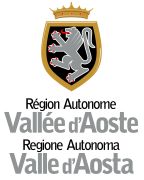
Ageing, depopulation and “talent development traps” are increasingly affecting more and more regions in the EU. The Letta Report introduces the concept of “freedom to stay”, which underlines the need to ensure that people have a real choice to remain in their home regions and communities, rather than being forced to move due to economic, social or demographic pressures. The goal of this political debate will be discussing the demographic challenges and possible solutions to address. The session will be held in two panels: 1) Political debate-3 speakers 2) Sharing best practices-3 speakers 4 members of the CoR and one YEP are confirmed and the gender balance is guaranteed
- Cohesion | Demographics (depopulation and ageing) | Local and regional | Territorial | Youth and citizens engagement
- Code: 14PD252121
- Jacques Delors building, JDE 53
Moderator
Practical information
- When
-
Tue 14/10/2025, 16:30 - 18:00 CET
- Where
- Jacques Delors building, JDE 53
- Type of partnership
- Regional partnership
- Format
- Political/policy debate
- Theme
-
The Right to Stay: unlocking the potential of every territory
- Languages
- English, Italian, Polish
Partners

Principality of Asturias

Centre Val de Loire Region

Castilla y León Regional Government

Valle d'Aosta Autonomous Region

Kujawsko-Pomorskie Region

Marshal's Office of the Lodzkie Region

Centro Regional Coordination and Development Commission Public Institute (CCDRC I.P.)

Malopolska Region
Document
Reporting
Session summary
With the Right to Stay concept at its core and under the context of the Europeoan Week of Regions, the “Right to Stay: how to tackle demographic challenges” political debate took place to discuss the demographic challenges and possible solutions to address.
• Piotr Całbecki, President of Kujawsko-Pomorskie Region (PL), highlighted the 5 main negative consequences of depopulation: Loss of agricultural land and of small farms, local business (specially SMEs), loss of public services linked to population (such as schools), increase of inequality and social issues for depopulated areas, and loss of local culture and tradition. He also stressed the need to invest in creating different job offerings than traditional agriculture and tourism for rural areas, as well as to innovate and modernize the traditional agriculture and tourism in order to make them more attractive to young people and more economically competitive.
• Raquel García González, General Director for European Affairs in Asturias (ES), emphasised on the importance of a territorial-based approach when dealing with demographic challenges. Based on the experience of Asturias, she recommends a bottom-up based approach for unpopulated areas. Raquel also explained that there is a connection between depopulation and competitiveness of Europe, as the loss of local business and agriculture have negative economic impact and hinder the competitiveness of the regions. Finally, she highlighted the need for specific european funding to address and adapt to the demographic transition.
• Castilla y León (ES) Talent Strategy video presentation of its Strategy for Talent, which is a key pillar in addressing demographic challenges. This strategy has 4 core objectives: Create a strong talent ecosystem, improve and increase the talent generation of the region, talent attraction from outside the region, and talent retention from inside the region.
• Maciej Riemer, regional councillor, Lodzkie Region (PL), exposed how the housing crisis is having a greater negative impact in the young population. He highlighted the need to aid young people in buying their first house, which is a fundamental part in establishing a family.
• Alexandra Rodrigues, Vice-President of CCDR Centro Region of Portugal, explained the “Right to remain” strategy of Centro region in Portugal. Centro region has organized its strategy around the creation of 4 areas of small towns and villages based on similarities and related challenges. This local-based solution has allowed them to specialise in each area, which under their experience has been a success. This fight against depopulation started more than 30 years ago, and she highlighted the critical importance of continuity in both founds and dedicated personnel.
• Anna Mlost, Director of the Regional Development Department , Malopolska Region (PL), explained an innovative programme for improve the access of healthcare on the rural elder population of the Malopolska Region. This programme offers simple remote access for healthcare services by an online app designed to be easy to use for the elderly. This system allows to bring services to rural and remote areas that would otherwise have to travel many kilometres to the closest medical centre.








